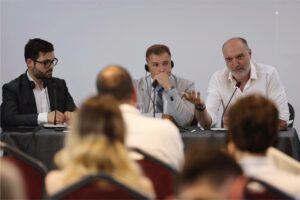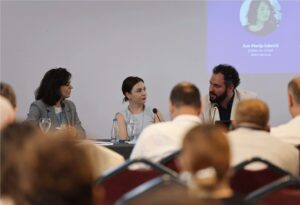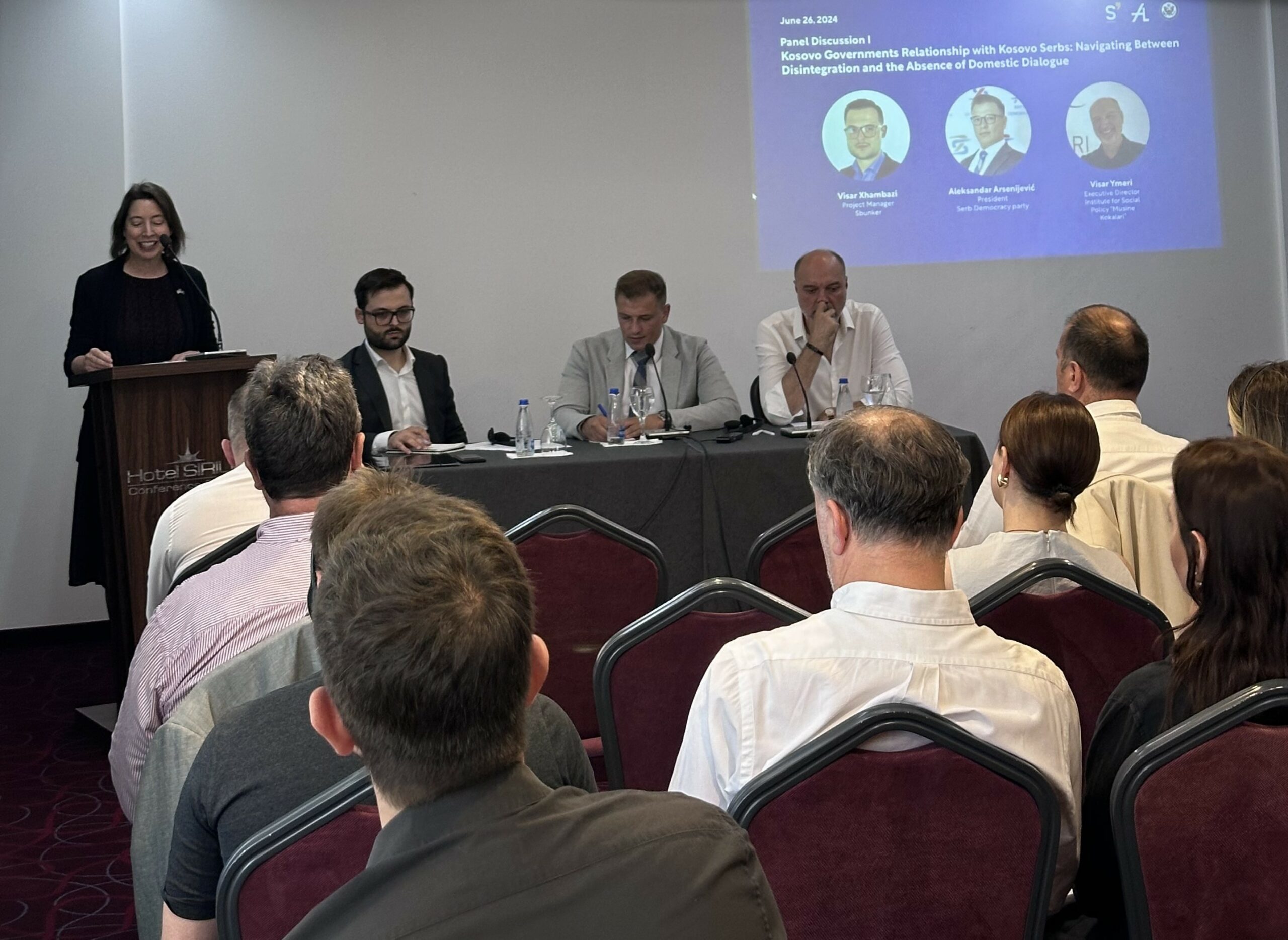On June 26, Sbunker and Alternativna successfully co-organized the “Building Bridges or Widening Gaps?” Conferenceas part of the “Empowering Voices: A Media Project for Inclusive Democracy in Kosovo,” supported by the U.S. Embassy in Kosovo.
The event began with opening remarks by Ms. Jennifer Lawson, Public Affairs Counselor at the U.S. Embassy in Kosovo. She emphasized the importance of events that encourage dialogue and bridge-building between communities in Kosovo.

The first-panel discussion, “Kosovo Government’s Relationship with Kosovo Serbs: Navigating Between Disintegration and the Absence of Domestic Dialogue,” featured Aleksandar Arsenijević, President of the Serb Democracy Party and Visar YmeriExecutive Director of the Institute for Social Policy “Musine Kokalari.” The discussion was moderated by Visar Xhambazi, Project Manager at Sbunker.
This discussion highlighted significant challenges in the relationship between the Kosovo government and the Kosovo Serbs, emphasizing the need for genuine dialogue, gradual integration and a liberal approach to understanding cultural differences.
- Mr. Arsenijević criticized the Kosovo government for poor crisis management and repressive measures against Serbs, leading to their marginalization. He stressed the need for sincere dialogue with the Kosovo Serb community.
- Mr. Ymeri stated that Kosovo government is focusing more on obstacles rather than solutions and stressed the need for genuine interethnic dialogue. He emphasized that Kosovo is not solely an Albanian state and that integration should be gradual and realistic, highlighting the need for a liberal mindset to foster integration in a multiethnic society.

The conference concluded with the second panel titled “Kosovo Government’s Approach to Civil Society: Balancing Collaboration and Disengagement.”. This discussion featured Jovana Radosavljević,, Executive Director of the New Social Initiative and Emir AbrashiPolicy Analyst at Democracy Plus. The discussion was moderated by Ana Marija IvkoviqEditor-in-Chief of Alternativna.
- Mr. Abrashi highlighted the lack of prior communication and engagement between the Kosovo government and civil society. He emphasized the government’s avoidance of civil society and called for a change in the government’s perception, urging them to see civil society as a partner rather than an adversary.
Ms. Radosavljević noted the Kosovo government’s failure to initiate dialogue with the Serb community. Regarding civil society, she stated that there is communication but no collaboration, with meetings between civil society and the Kosovo government resembling a monologue rather than a dialogue.
The discussions underscored the strained relationship between the Kosovo government and civil society, emphasizing the need for better communication, mutual understanding and greater collaboration between the government and civil society.





























































